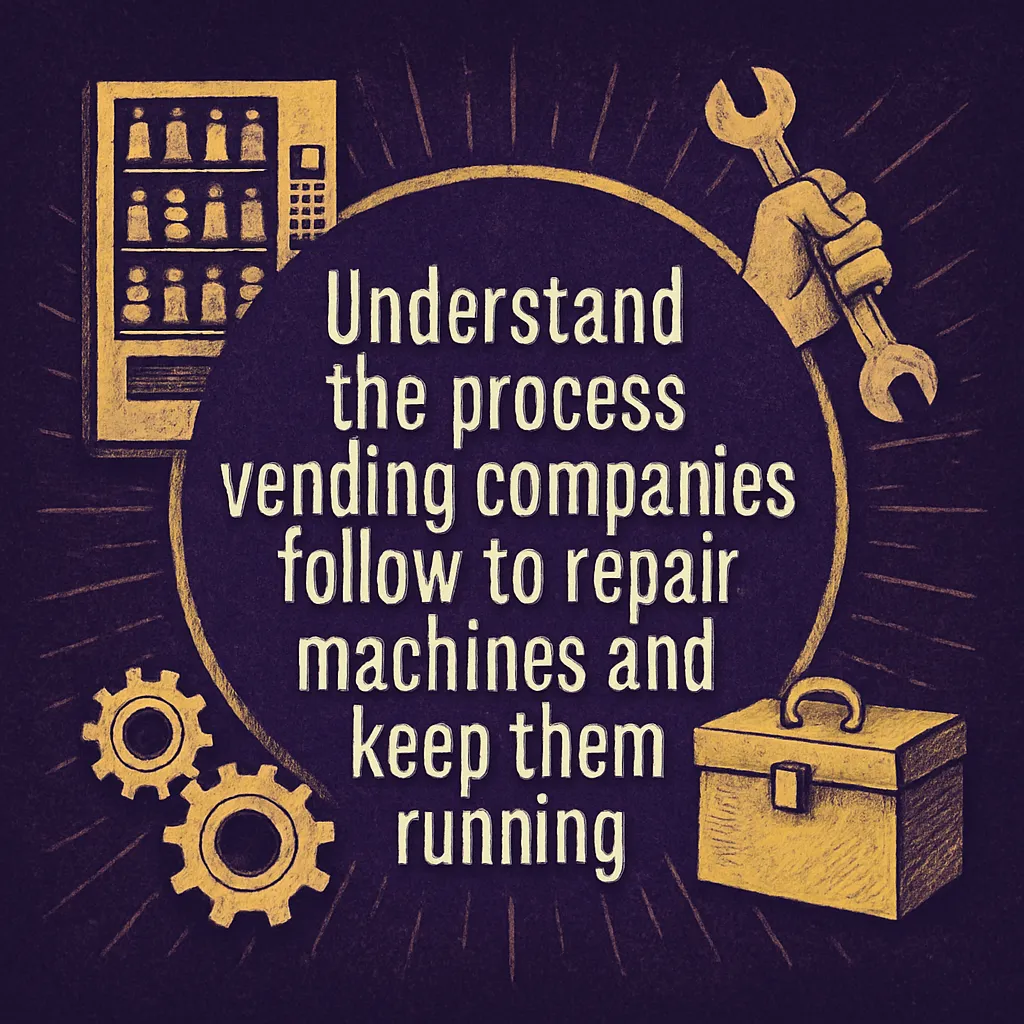What Happens if a Vending Machine Breaks?
Understand the process vending companies follow to repair machines and keep them running efficiently.
Back to Vending FAQs ResourcesUnderstand the process vending companies follow to repair machines and keep them running efficiently.
Back to Vending FAQs ResourcesWhen a vending machine breaks, the quick and efficient response of the service provider is crucial to minimize downtime and maintain customer satisfaction.
![]() Prompt reporting mechanisms ensure fast repair initiation
Prompt reporting mechanisms ensure fast repair initiation
![]() Experienced technicians resolve issues quickly and effectively
Experienced technicians resolve issues quickly and effectively
![]() Regular maintenance prevents many common breakdowns
Regular maintenance prevents many common breakdowns

Even the most advanced vending machines can occasionally experience a malfunction. While modern equipment is designed for reliability, mechanical or electronic issues can arise. When a vending machine breaks down, the primary concern for any business hosting the machine is how quickly it can be returned to service. A prompt response ensures minimal disruption to employee or customer access to snacks and beverages.
The first step in addressing a broken vending machine is typically to report the issue to the vending service provider. Most machines have a prominently displayed sticker with contact information, including a phone number or QR code for reporting problems. Many modern vending operators also utilize telemetry systems that can remotely monitor machine health, sometimes alerting the provider to issues before a host business even notices. Upon receiving a report, the provider will assess the problem, which might involve a quick remote diagnostic or directly dispatching a technician.
For minor issues, such as a product jam or a payment system glitch, a technician might be able to resolve the problem during a routine restocking visit. However, for more complex mechanical failures, like a refrigeration unit breakdown or significant component damage, a dedicated service call will be scheduled. Reputable vending companies prioritize repairs, often aiming for a 24 to 48-hour turnaround time for critical malfunctions to ensure continuous service. They manage all aspects of the repair, including acquiring parts and providing skilled labor, saving the host business time and resources. Understanding the nuances of vending contracts can shed more light on these responsibilities.
To minimize future breakdowns, vending service providers often implement preventative maintenance schedules. This involves regular checks, cleaning, and replacement of worn parts before they fail. For machines that experience persistent problems or become outdated, providers may offer an upgrade or replacement. This commitment to maintaining efficient and reliable equipment is a hallmark of quality vending service. Businesses often consider factors like location and profitability, as discussed in evaluating their vending location strategy, to ensure their machines are always running optimally.
First, look for a service sticker or contact information on the machine. This typically includes a phone number or email to report the issue directly to the vending provider.
The vending service provider that owns and operates the machine is responsible for all repairs and maintenance. This is usually outlined in their service agreement.
Response times vary, but most reputable providers aim to address critical issues, like payment malfunctions or total breakdowns, within 24-48 hours. Less urgent issues may take longer.
Common issues include currency reader malfunctions, product jams, refrigeration problems, software glitches, or general wear and tear on mechanical parts.
No, if you host a vending machine through a full-service provider, all repair costs are covered by them. Your business is not responsible for any maintenance expenses.
Choosing a reliable vending provider with a strong maintenance schedule is key. Regular cleaning and ensuring the machine is not overloaded can also help.
Most machines have a number to call for refunds or issues. The vending provider will typically issue a refund directly or credit your next purchase.
For ongoing issues, providers may offer to replace the machine entirely to ensure reliable service and customer satisfaction.
Yes, snack, beverage, and specialty machines may require unique parts or expertise, but the reporting process for breakdowns remains generally the same.
Modern vending providers use telemetry and management software to monitor machine status, track reported issues, and schedule technicians efficiently.